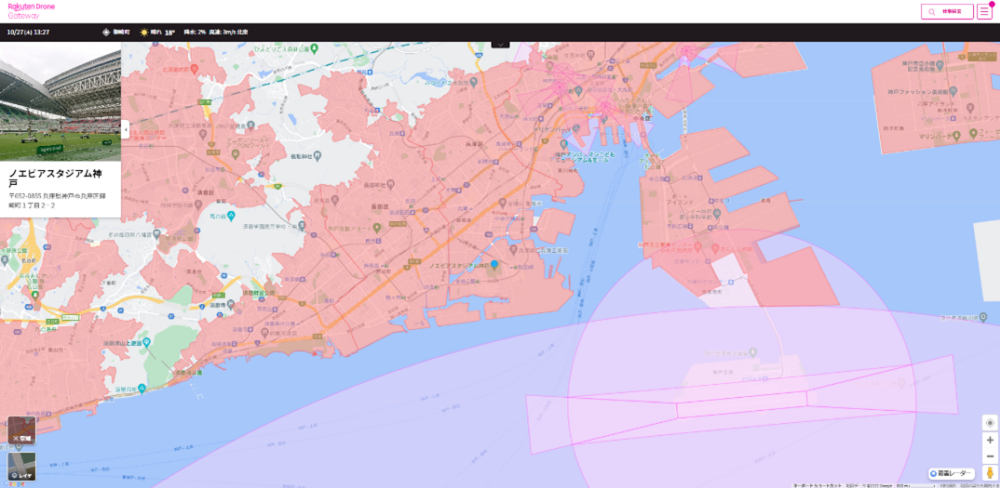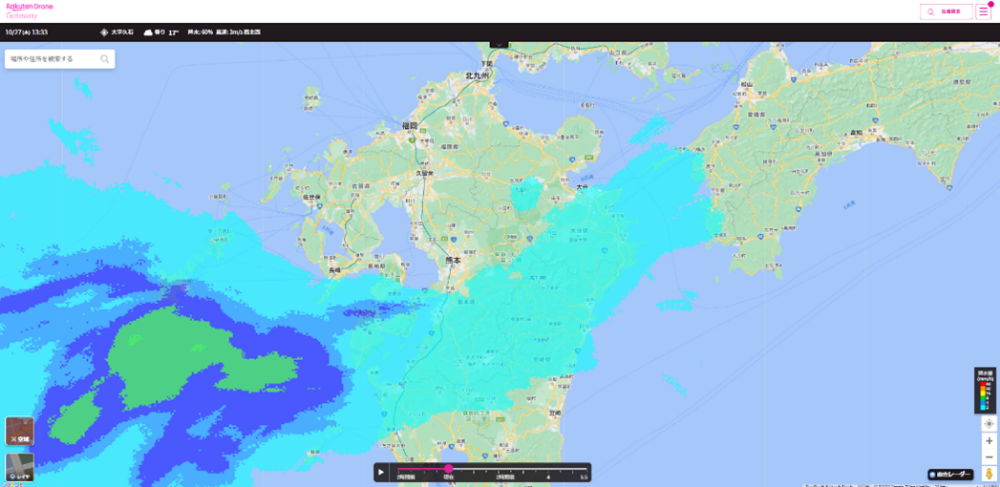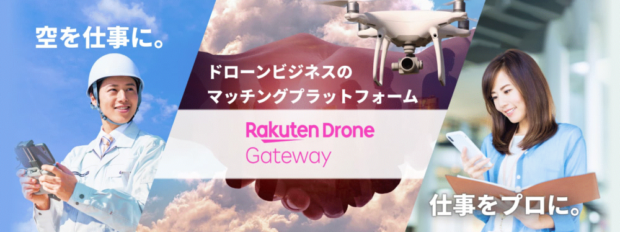Rakuten recently unveiled Rakuten Drone Gateway, a new platform aimed at drone operators and businesses looking to leverage drone services. In addition to job matching, the platform aims to be a one-stop shop for everything one might need to get flying.
The launch came at a similar time as the recent changes to Japan’s drone regulations were applied, allowing pilots to operate in more areas in an official capacity. Lacking structured regulations, drone flight in Japan has long been a tricky area to navigate, requiring extensive paperwork for each individual flight. The newly relaxed regulations paint a promising picture for the future of Japan’s drone services industry.
Matching new demand with new talent
Rakuten Drone Gateway is, at its core, a matching platform. The service primarily seeks to match professional drone operators with companies and individuals who need drone services.

Rakuten Drone Gateway’s maps clearly outline no-fly zones and special registration zones. This map, centered on soccer team Vissel Kobe’s home ground of Noevir Stadium, displays a no-fly zone over Kobe Airport in the bottom right
Japanese companies can now post whatever they need done on Rakuten Drone Gateway – including job details such as location and pay – which can be browsed and applied for by certified drone pilots registered on the platform.
The platform is also designed to work as a hub to empower drone operators with all the data necessary for a successful flight.

Built-in weather forecasting functions make drone flights a breeze
In addition to maps, aerial photography and topographic data for all of Japan, the platform shows real-time no-fly zones such as airports and other areas that are off-limits under specific conditions. In-app rain and weather forecasts will also help operators adjust their plans on the fly.
The skies of Japan opening up to drones
The launch of Rakuten Drone Gateway lands during an exciting time for drone enthusiasts in Japan.
In June 2022, the Japanese government launched a drone registry for all drones above 100g in weight, requiring all registered devices to be equipped with a remote ID function. The move allows for better management of drones, where previously a lack of regulation had made any meaningful control in the industry difficult.
In December the same year, the government took another major step in officially allowing the operation of so-called ‘level four’ drone flights. The relaxed regulations now allow owners to operate their drones beyond line of sight – something previously only possible in unpopulated areas.
Following the change in the law, registered drones must undergo rigorous safety checks and pilots will be required to undergo testing to obtain a license and renew it every three years. The move clears the way for experienced pilots to expand their scope of operations, while also encouraging newcomers to try their wings.
Major progress for Rakuten’s drone businesses
Rakuten is in a unique position to ride Japan’s new wave of drone demand, having carried out countless drone service trials ranging from drone deliveries to remote areas and mountain peaks.
In fact, Rakuten is one of the first companies in Japan to leverage drones for actual business operations: In 2021, Rakuten Mobile began deploying drones to inspect completed base stations, an operation that saves hours when compared to having human engineers scale each tower.
Rakuten’s insurance businesses have also embraced airborne tech, employing drones to carry out inspections of clients’ property to survey the damage following natural disasters, allowing for swift payouts for insurance customers.
The company also supports the training of new drone pilots: The Rakuten Drone Academy launched in 2021, with one school in Minakami, Gunma Prefecture, and the second in Tokyo. The academy teaches a range of professional drone skills, from aerial photography to basic drone maintenance.
With local regulations starting to mature and companies like Rakuten hard at work empowering industry players, drone operators in Japan have an exciting time ahead of them.
Source: Press Release

